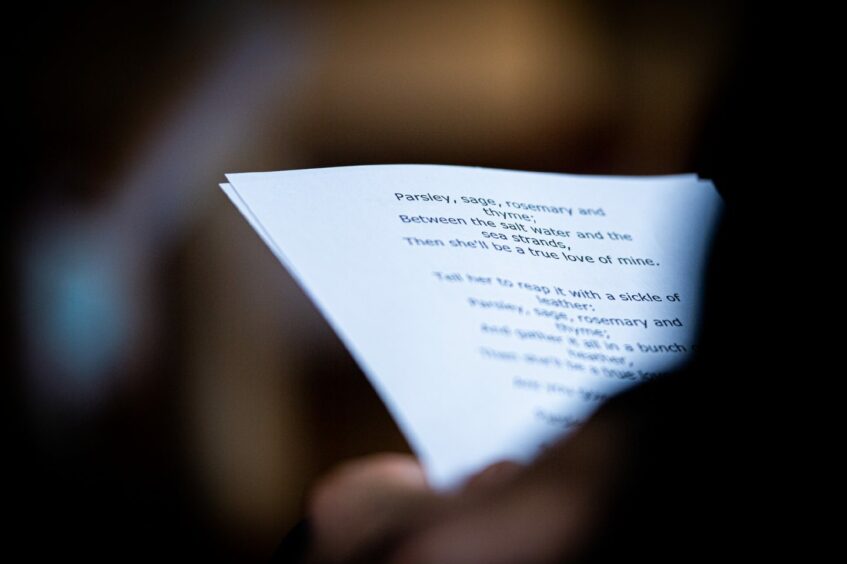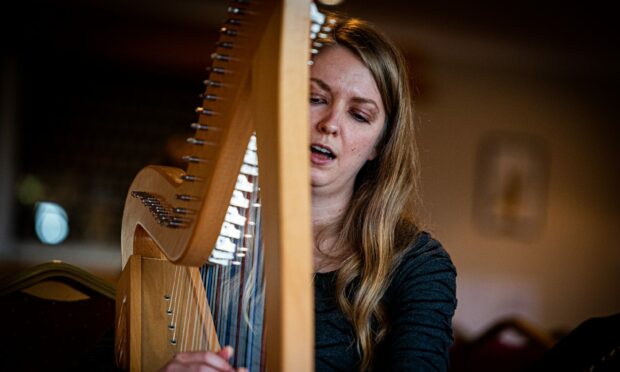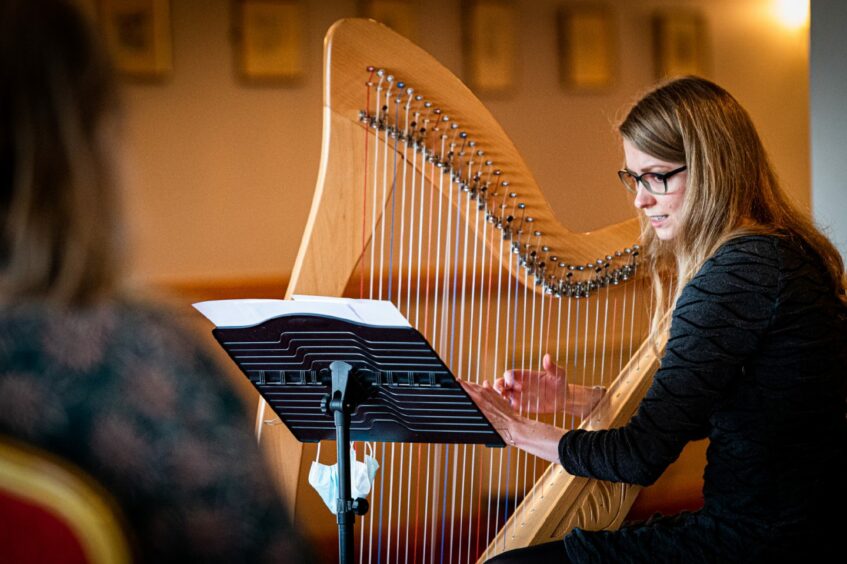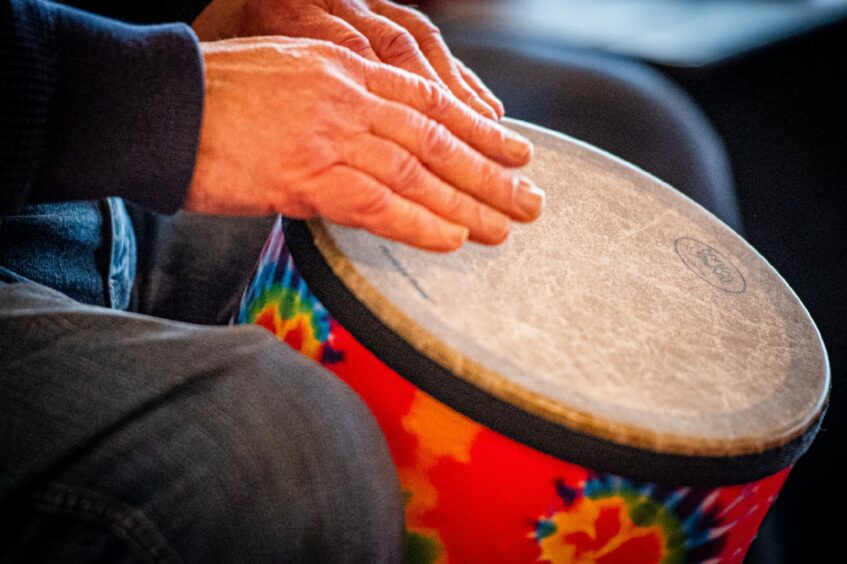Stroke survivors in Aberdeen have been using music and rhythm as part of their road to recovery.
While it’s an established practice in other parts of the world, with a large following throughout Scandinavia, it is a relatively new concept in the UK.
This week music therapist Mary Page used her skills to guide people through a taster therapy session at Aberdeenshire Cricket Club, highlighting the transformation these activities can have.
During the session, she used her harp and got participants to sing up and down the scales. Later. she led them in renditions of Scarborough Fair and Loch Lomond.
Mary also used physical activities – tapping their feet left and right to the beat, and putting their arms in the air.
How music therapy uses ‘the other side of the brain’ to help regain speech
When she studied at Arizona State University, Mary hosted music therapy sessions with a number of stroke survivors.
During a stroke, where the brain is deprived of oxygen, it can lead to damage to the parts responsible for speech.
Mary recalled one of her clients being unable to speak but, through her sessions, was rehabilitated over time.
She explained: “We would spend the first part of the session singing songs, then the second half would be working on the different songs with chimes.
“Everybody would have a different chime with a different colour, I would hold up the different colours according to which chord was played in the song.

“One guy wasn’t able to do that but he sang, he’d suffered numerous strokes, so all he was able to do was sing but he was perfectly happy doing that.
“They use the other side of their brain to sing and so because that’s still there, that’s what they use to pronounce words and learn how to speak again.”
Playing through discomfort
In addition to using their voices, Mary also handed out maracas and a drum, stressing the importance of reintroducing the childhood practice of play and improvisation.
“Play is a big part of music therapy, we learn to do what we’re told rather than explore in our own way,” she said.
“When we’re faced with having to improvise, it can be uncomfortable.
“Being able to do that in a non-judgmental therapy room, people can be comfortable with it again.”
The Stroke Association charity says activities like music therapy can provide massive benefits to people affected by it.
Engagement officer Gaby Beattie said: “A stroke can be devastating. The impact varies depending on which part of the brain is affected.
“It could be anything from wiping out your speech and physical abilities, to affecting your emotions and personality.
“That is why we are delighted with Project Sing, which has the potential to aid stroke recoveries and rebuild lives.
“In addition to the benefits music therapy can bring to aid stroke recoveries, it’s, a great way to meet people and enjoy music together.”


